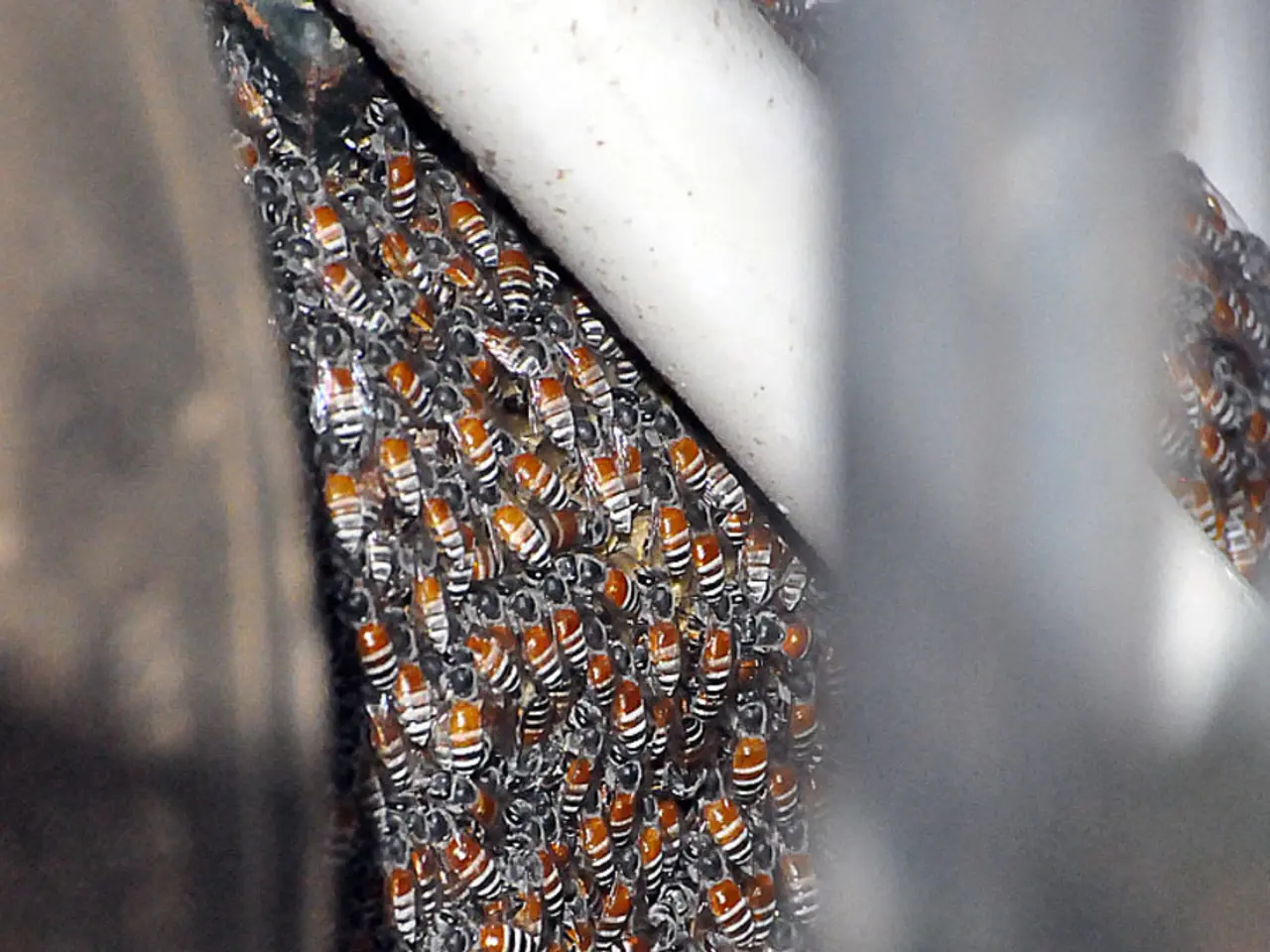Wound Infection Identification, Causes, Signs, and Remedies
Wound infections can pose a significant health risk, especially when left untreated. Here's a look at some common bacteria that can cause wound infections, the symptoms to watch out for, and steps to minimize the risk.
Common bacteria that may cause a wound infection include Staphylococcus aureus, Pseudomonas aeruginosa, Escherichia coli (E. Coli), Proteus mirabilis, Acinetobacter baumannii / haemolyticus, and Streptococcus. These bacteria can enter a wound through foreign particles or unclean conditions, increasing the risk of infection.
To minimize the risk, it's essential to practice good wound care. This includes thoroughly washing hands, stopping active bleeding, cleaning the wound, ensuring it is free of dirt or debris, applying antiseptic ointment or petroleum jelly, and allowing the skin to air dry before covering it with gauze or a bandage.
Foreign particles entering the wound also increase the risk of infection. Therefore, it's important to avoid contaminated objects when caring for a wound.
Severe wound infections can lead to complications such as sepsis, a life-threatening condition caused by an extreme immune reaction that can lead to multiple organ failures. More severe wound infections may require prompt medical attention and treatment with antibiotics.
Certain health conditions can increase the risk of wound infection. These include diabetes, a weakened immune system, lack of mobility, advanced age, nutrient and vitamin deficiencies, and conditions that affect blood flow.
Symptoms of wound infections can include increased redness and swelling, pus or discharge, warmth and pain, fever, foul odor, tenderness, and in severe cases, necrosis or darkened skin. If you notice any of these symptoms, it's crucial to seek medical attention promptly to prevent complications like sepsis or necrotizing fasciitis.
Some wounds may require further treatment in addition to cleaning, such as wound cleansing solutions, specific wound dressings, or procedures to remove infected or dead tissue. Animal or human bites can also increase the risk of wound infection, and people with such bites may require a tetanus shot.
Environmental factors like immunosuppressant medications can also increase the risk of wound infection. Practicing proper wound aftercare, such as changing the dressing daily, gently washing the wound, avoiding hydrogen peroxide or iodine, not picking at the skin or scab, and seeking medical attention if the wound does not improve within 1-2 days, can help the healing process, reduce the risk of infection, and minimize scarring.
In conclusion, understanding the risks and symptoms of wound infections is crucial for maintaining good health. By practicing good wound care and seeking medical attention when necessary, you can help prevent complications and ensure a smooth healing process.
- Wound infections can pose a significant risk, especially for individuals dealing with chronic conditions such as diabetes, a weakened immune system, or chronic kidney disease.
- In addition to these, multiple health-and-wellness issues can increase the risk of wound infections, including respiratory conditions like COPD, mental-health issues like depression, psoriatic arthritis, or multiple sclerosis.
- Certain forms of chronic diseases, such as asthma or Type 2 diabetes, can also contribute to an increased risk of wound infections.
- The symptoms of a wound infection can often be identified by signs such as increased redness and swelling, pus or discharge, warmth and pain, fever, or a foul odor.
- Wounds caused by accidental falls or cuts may develop infections that can be dangerously severe, potentially leading to complications such as sepsis or necrotizing fasciitis.
- Proper medical-condition management is vital for reducing the risk of wound infections. This includes maintaining good skin-care routine for conditions like psoriasis or diabetes to prevent wounds and breakdowns.
- Science is playing an essential role in the development of predictive models for identifying individuals who may be more susceptible to wound infections and chronic-disease complications.
- It's crucial to seek medical attention promptly if any symptoms of a wound infection, like tenderness or necrosis, are noticed, as timely treatment can help prevent severe complications.
- In some cases, wounds may require specialized treatments such as wound cleansing solutions, specific wound dressings, or procedures to remove infected or dead tissue. Medical attention is essential in these situations to ensure proper treatment and avoid further complications.
- Environmental factors, such as exposure to certain bacteria or the use of immunosuppressant medications, can also increase the risk of wound infections.
- To prevent wound infections, emphasis should be placed on practicing good wound care habits, such as cleaning wounds thoroughly, avoiding contaminated objects, monitoring the wound's healing process, and seeking medical attention when needed.




